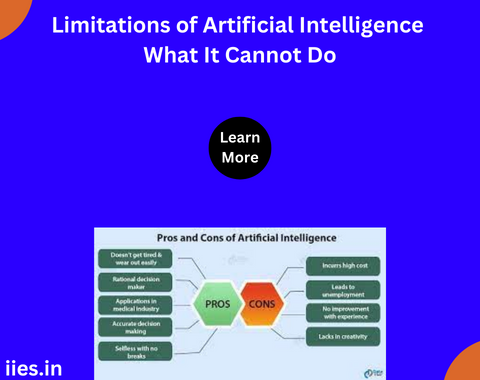1. Lack of True Understanding
For instance, a language model may generate coherent sentences, but it does not comprehend the meaning behind the words. This lack of true understanding hinders AI’s ability to engage in nuanced conversations, understand context, and grasp abstract concepts.
2. Emotional Intelligence
Emotional intelligence involves the ability to recognize, understand, and respond to human emotions effectively. AI, despite its advanced capabilities, struggles to emulate emotional intelligence. Human emotions are complex, often influenced by various factors, and AI systems find it challenging to interpret and respond to emotional cues accurately.
While AI can be programmed to recognize certain facial expressions or tones of voice, it cannot genuinely understand the underlying emotions or empathize with individuals. This limitation is particularly evident in fields such as counseling, therapy, and interpersonal communication, where emotional intelligence plays a crucial role.
3. Common Sense Reasoning
Human beings possess a remarkable ability for common sense reasoning, allowing them to make intuitive judgments and navigate the world with ease. AI, on the other hand, often struggles with common sense reasoning. While it can excel in specific tasks and provide logical outputs, it may falter when faced with situations that require a deep understanding of the real world.
For example, an AI system may struggle to comprehend the implications of a statement like “it’s raining cats and dogs” beyond its literal interpretation, missing the figurative meaning that humans easily grasp. Common sense reasoning is essential for tasks such as problem-solving, decision-making, and adapting to novel situations – areas where AI currently falls short.
4. Creativity and Innovation
Creativity is a uniquely human trait that involves generating novel ideas, solutions, and artistic expressions. While AI can assist in creative processes by generating suggestions based on existing data, it cannot truly innovate or create something entirely new. Creativity involves intuition, emotions, and a deep understanding of cultural and societal contexts – elements that AI lacks.
In fields like art, music, and literature, where creativity is paramount, AI can serve as a tool for inspiration, but it cannot replace the human touch. The ability to think outside the box, draw connections between seemingly unrelated concepts, and envision the future remains firmly within the realm of human creativity.
5. Ethical Decision-Making
Ethical decision-making involves weighing moral considerations and making choices that align with societal values. AI faces significant challenges in this regard, as it lacks a moral compass and cannot inherently understand ethical nuances. The decisions made by AI systems are based on algorithms and predefined rules, often without the ability to discern the ethical implications of their actions.
Issues such as bias in AI algorithms, unintended consequences, and the potential misuse of AI technologies highlight the ethical challenges associated with artificial intelligence. While efforts are being made to incorporate ethical considerations into AI development, the inherent limitations of machines in understanding and navigating complex ethical dilemmas persist.
6. Physical Dexterity and Sensorimotor Skills
While AI has made strides in robotics, it still falls short in terms of replicating the fine motor skills and dexterity of human beings. Tasks that involve intricate manipulation, delicate touch, and precise hand-eye coordination remain challenging for AI-driven robotic systems. Human sensorimotor skills, honed through years of evolution and learning, are difficult to replicate in machines.
Industries such as healthcare and manufacturing, where precision and dexterity are crucial, rely heavily on human expertise. AI-powered robots may assist in certain aspects, but they cannot fully replace the capabilities of skilled human workers in tasks that require a combination of physical finesse and cognitive abilities.

